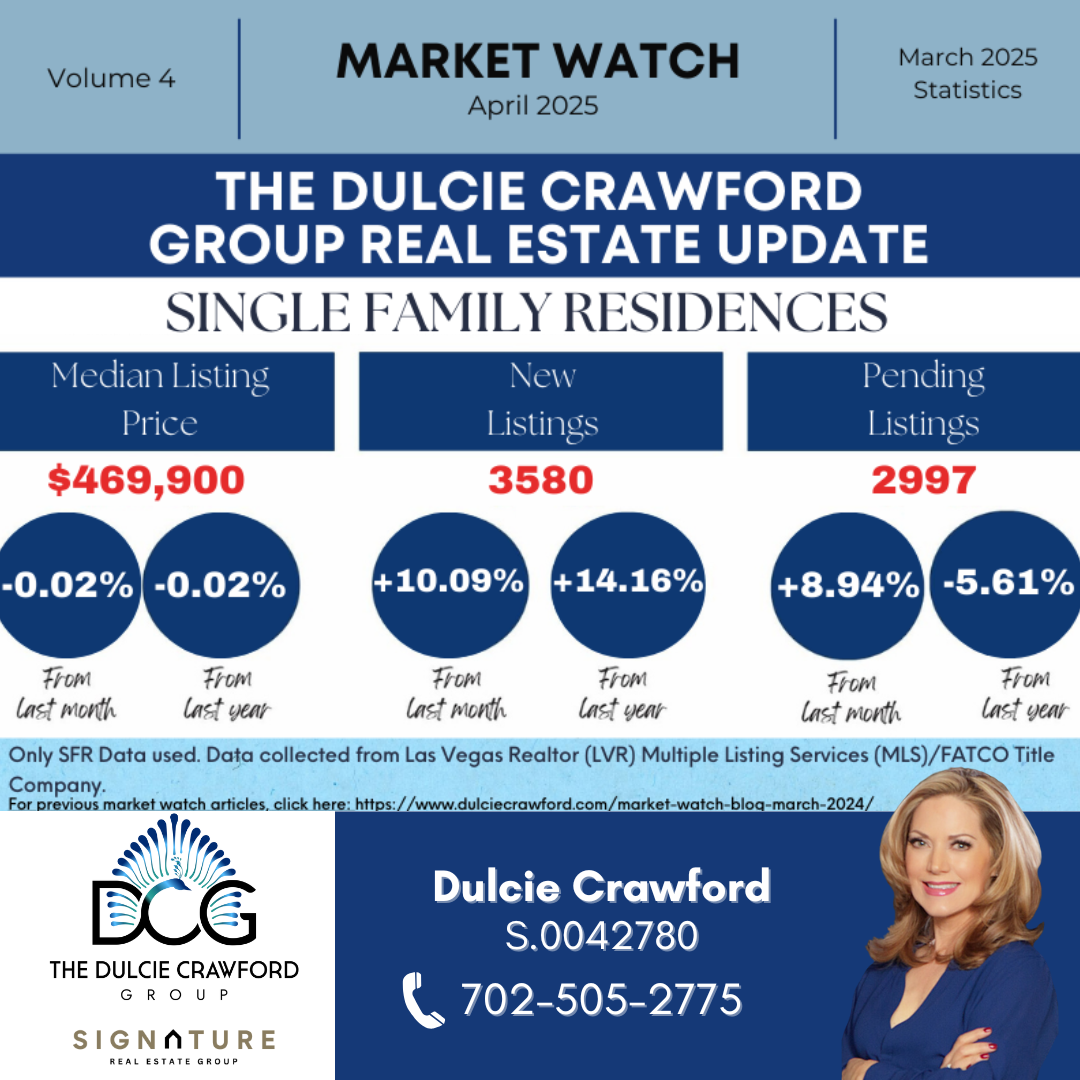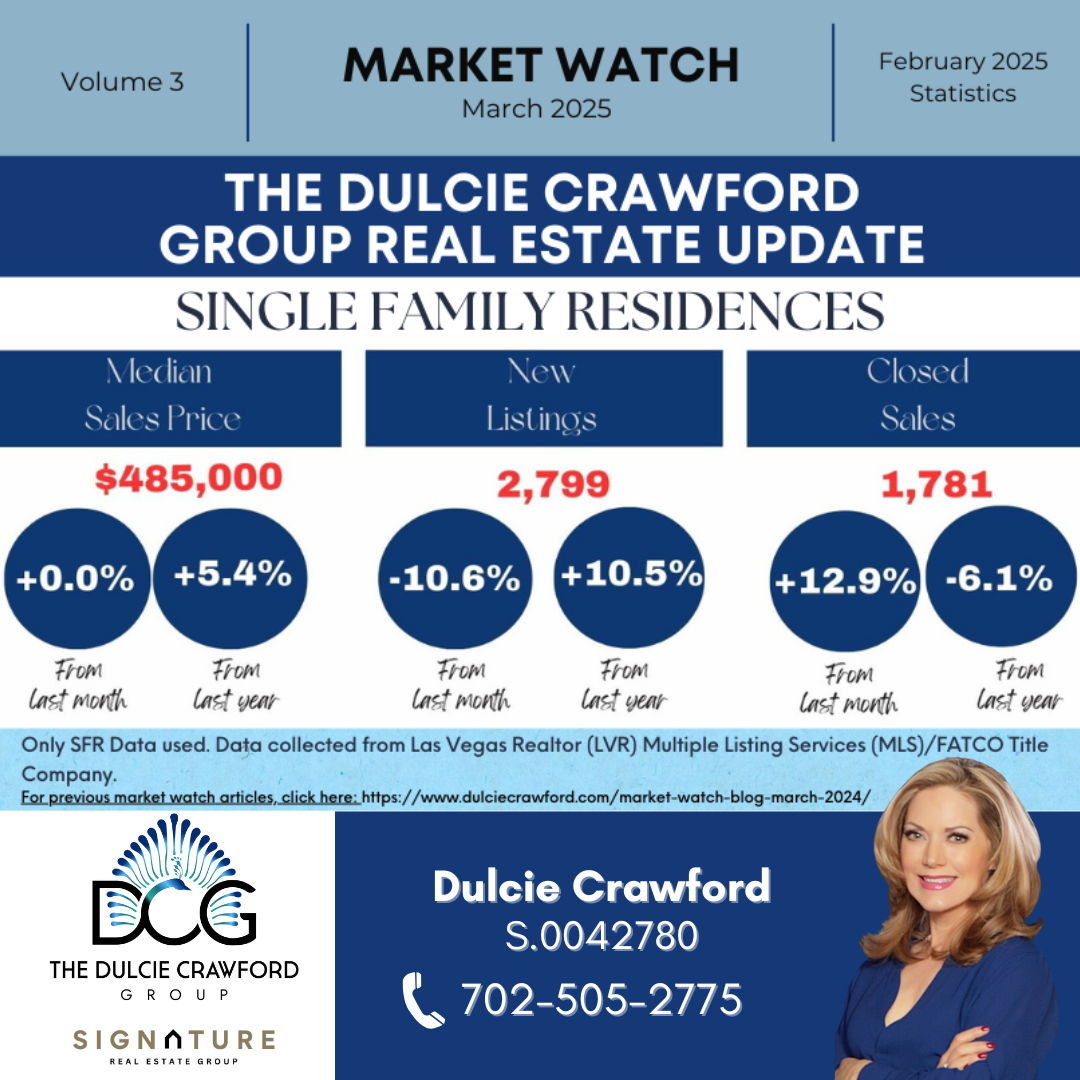Prospective homebuyers in the Las Vegas area have found themselves in a dilemma with the rising mortgage rates and home prices this year. Usually prices rise as rates fall, and vice versa, but it has seemed like everything is going up. And what goes up must come down, right?
Well, yes and no. Mortgage rates and other interest rates have not topped out. They have danced around 6%, and recently went over that number briefly. They have also fallen below 5% at least twice this year, with the last being a little over a month ago — and that’s compared to less than 3% last year. But we can easily expect them to go higher, says Realtor® and analyst Dulcie Crawford.
“In my opinion, the current US economy is unpredictable based on what will happen after the Midterm Elections in November,” Crawford says. “The economic condition of the country could change for the better, and this may or may not be a slower or faster recovery than expected for the housing market. Almost all analysts predict short term interest rates are continuing to go up for the credit markets, to curb inflation.”
Buying real estate now in a balanced market with motivated sellers opens opportunities that did not exist just six months ago. “I recommend buyers not to sit on the sidelines,” Dulcie continues. “Buy your dream home or a good solid investment property now and take advantage of a better balance of available inventory.” And choose a seasoned Realtor who knows how to negotiate terms that are favorable to the buyer.
The Dulcie Crawford Group is currently using several successful strategies:
- Have your mortgage lender offer an adjustable ARM loan that starts at a 4% interest rate, and graduates up for 3 to 5 years. This allows the buyer to refinance into a lower fixed rate when the rates drop.
- Have your Realtor negotiate that the seller pays closing costs as a rate buy down. Many sellers right now are saying yes to get homes sold quickly instead of being on the market for many months.
- Buy now, and push for the lowest possible price with a motivated seller while the market favors the buyers, and plan to refinance later when rates are lower again. Negotiate with your mortgage lender to do a discounted refinance for you. They are hungry now to close more sales, so they will appreciate the business.
“Many would-be homeowners were priced out of the hot market for the last two years,” Crawford adds. “I say you will always be in a much better place financially to be a homeowner with the tax deduction, building better solid credit, and possibly equity in the next 3 to 5 years instead of continuing to rent.”
So if rates are increasing, will prices drop as a result? They have already started to, a little bit. But pricing is based on supply and demand, among other things. And waiting won’t likely see prices lower substantially, like when we had a market crash almost 15 years ago. Because it’s a different world today.
2008 Crash vs. Today’s Market
If you remember the 2008 real estate crash that practically leveled Las Vegas and left it looking like a wasteland in some areas, you likely don’t want that happening again. Nobody does. And chances are good that it won’t.
The key difference is that there was an abundance of home inventory back then, because builders had gone a little crazy building too much. It’s a story we have seen play out time and time again. It was like Icarus flying too close to the sun … overconfidence caused a sudden and unexpected (though not unforeseeable) crash back down to earth.
Based on supply and demand, that should have been expected. There was too big a supply for the demand. Too many homes made it a buyer’s market. Today, on the other hand, there is still a low inventory of homes, whether new or resale.
Low home inventory is due to three things:
- New home builders have created less
- Homeowners aren’t selling as fast
- Fewer homes are being foreclosed upon
Part of the reason behind these trends is the COVID-19 pandemic. Builders were forced to slow or halt their building pace when the supply chain shut down in 2020, and homeowners felt a growing need to hold on to their houses for a sense of security. Meanwhile, COVID-related government regulations prevented evictions, foreclosures and other actions that would have forced homes back into the market.
None of these factors were in play in 2008. In fact, 2008 had countless foreclosures due to reckless lending standards, which became a cautionary tale that will likely never become the norm again. And new home builders have been strategic with their pace this time around, specifically because they don’t want to create the same situation that happened back then. They learned their lessons, it was extremely painful, and they’re not looking for an encore.
If you check out home inventory in Las Vegas over the past few years, it is currently up slightly over last year. However, it’s still significantly down from pre-pandemic numbers in 2019. That means we’re still looking at historically low housing inventory, and that in turn means we’re not headed for another overinflated crash.
It’s worth noting that it usually takes a pattern of at least six months to create a norm. So we would need to see home inventory steadily increasing over six months, without the sales being able to keep up, before we could even consider a pending crash. And that’s not happening.
What is happening instead is a nice balance of buying and selling, whether new or pre-owned homes. As a result, we’re likely to continue seeing both prices and mortgage rates fluctuate up and down rather than increase or decrease at a steady pace.
If you were to wait for prices to drop further, but in the meantime interest rates went up a few percentage points, you would still end up paying more for your home over the term of the mortgage. So there’s no reason for buyers to wait. There’s also no reason for sellers to wait, since prices aren’t expected to continue rising. Therefore, this is one of those rare points in time where it’s an optimal market for both buyers and sellers.
Vegas Wins at The Craps Table
The housing market in Las Vegas is not a craps shoot. In fact, despite the city’s reputation as a gambling town, real estate is one place where it’s never a bad gamble here.
Vegas is a resilient town that always bounces back from adversity, from the housing crash to the 2017 mass shooting to the COVID-19 quarantine. These events each could have destroyed a tourist destination like Las Vegas — but they didn’t.
In fact, Las Vegas has continued to prove itself an extremely attractive place to live, thanks to its growing economy, world-class amenities, luxurious yet affordable cost of living, beautiful weather year-round, and of course its tax structure. Because Las Vegas offers these unique benefits over other cities, many people will continue to relocate here.
Let an Expert Guide Your Journey
It’s more than possible to find a good home in a great Las Vegas location and start your own legacy for the future. For help finding your ideal dream home in the entertainment capital of the world, look no further than community expert Dulcie Crawford.
Dulcie is a native of Las Vegas with over 24 years of local real estate expertise. She understands the city and its trends and opportunities more than anyone. Dulcie has watched Vegas rise and fall and rise again, and can help you pinpoint and locate the perfect home for you.
To find out more about working with Dulcie and her award-winning team, or to get more information about the current housing market conditions, properties featured on this blog, or our Hot Market Listings, please contact Dulcie Crawford directly at (702) 505-2775.

















